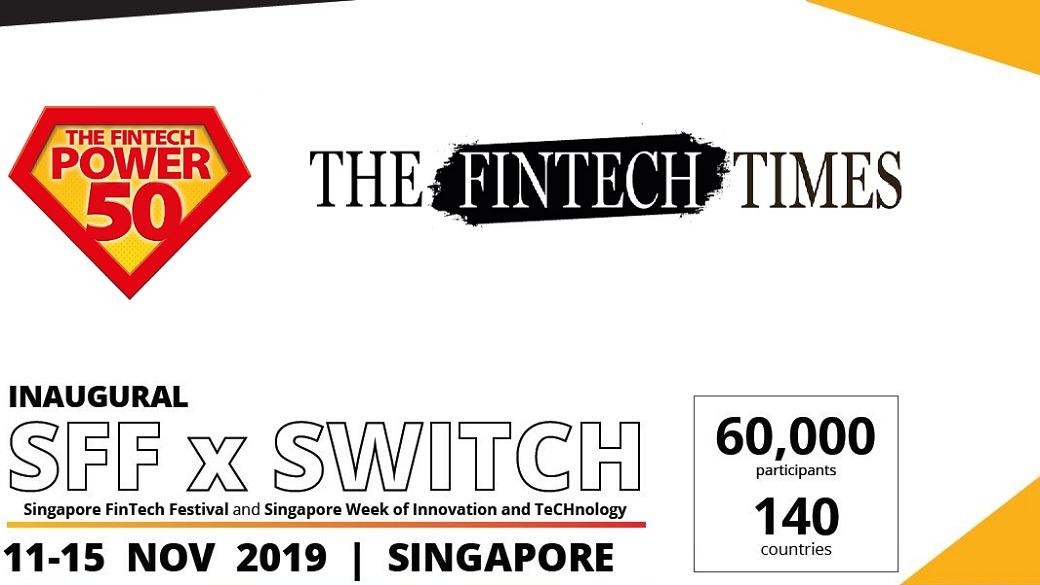The Covid-19 pandemic has been an unprecedented time for many. Despite this, and that many businesses are struggling to get by, the fintech industry has proved itself to be particularly resilient this year, taking advantage of the opportunity to grow and prove itself as a vital sector. In light of this, The Fintech Power50 has conducted a survey of its members earlier in the year asking how their business was fairing during the pandemic to help support a community sentiment.
Grab is the leading super app in Southeast Asia, providing everyday services that matter most to consumers. It offers the widest range of on-demand transport services in the region, in addition to food and package delivery services, digital payments and financial services across 339 cities in eight countries. Here Grab’s co-founder Hoo Ling Tan tells the Power50 about their 2020 experience.
What was the main challenge as a result of the pandemic for your company, and how did you work to overcome this?
In Southeast Asia (SEA) and around the world, we are seeing an unprecedented governmental, corporate and societal response to an evolving pandemic. In SEA, while some countries have opened up, there is still economic uncertainty and anxiety on the ground. Grab and Grab Financial Group (GFG) are deeply rooted in SEA and our mission has always been to empower and serve those in the region. We will continue to do so especially during this time of vulnerability.
Our long-term plans in financial services have not changed because of the pandemic. Our ‘Thrive with Grab’ strategy is focused on expanding GFG’s consumer ecosystem in order to tap into SEA’s vast mass market financial services opportunity (estimated to have a full revenue potential of US$60bn by 2025). This complements our successes in our merchant financial services ecosystem, first launched last year during ‘Grow with Grab’. These successes include:
- Robust growth across the region with more than 13 million paid-for insurance policies issued since April 2019 when we launched our insurance business.
- Today, GFG is one of the fastest-growing fintech lenders by disbursals. Together with our partner OVO, we have close to 400,000 outstanding loans and financing solutions across consumers, driver- and merchant-partners in Q1 2020.
- Expanded SME lending to four countries (Singapore, Malaysia, Thailand, Philippines) to support our food and retail merchants with working capital loans.
- The main goal of having these two thriving ecosystems (consumers and merchants) is to help us tap into the massive financial services opportunity in SEA.
What measures have you put in place to ensure the safety of your staff?
In July, we launched GrabProtect, a series of product features, policies and partnerships,that raises the bar on safety and hygiene standards for ride-hailing in Southeast Asia. For example, our in-app health declaration feature requires drivers, delivery-partners and passengers to confirm that they do not exhibit Covid-19 symptoms before booking a ride. We also implemented a mask-selfie identification system to ensure our drivers and delivery-partners are masked up before they accept rides or make deliveries. As part of this initiative, we also announced an extensive partnership with Unilever to protect Grab drivers and riders as well as to support the livelihoods of SMEs as they weather the impact of the pandemic. Unilever’s personal and home hygiene brands such as Lifebuoy and Cif will support Grab drivers to deliver safer and more hygienic rides under GrabProtect. By leveraging Grab’s platform and technology, Unilever products will also be available for consumers to purchase directly from Unilever’s vast network of retailers in Southeast Asia through GrabFood and GrabMart, thereby also helping small retailers and mom-and-pop shops around the region. In Indonesia, we were also the first ride-hailing company to pilot the installation of physical dividers in our vehicles to minimise physical contact between passengers and drivers on a ride. To date, over 21,000 physical dividers have been installed in GrabCar or GrabBike vehicles. For our deliveries business, we have introduced contactless delivery options to give our customers and riders greater peace of mind.
What was your main focus when navigating through these uncertain times?
With Covid-19, our business remains focused on proactively helping our customers and partners adapt to the ‘new normal’. With over 70 per cent of Southeast Asians underbanked, and millions of small and medium-sized enterprises (SMEs) still facing large funding gaps, Grab is committed to bridging these gaps by providing access to the digital tools that will enable our customers to fulfil their daily necessities from the comfort of their homes, and our partners to meet consumers where they are – online.
We expect some trends to persist post-pandemic. These include the heightened awareness of safety and hygiene among our customers and partners, elevated use of digital payments as well as the rapid shift towards digitalisation and the use of online platforms for daily needs. Our main focus has been to adapt to these trends and to look at how we can support our customers and partners during this transition.
What are your plans moving forward to ensure a successful operation as the pandemic continues?
We will continue to adapt our business as the situation evolves and redeploy our efforts to cater to the demands of consumers and our merchant-, delivery- and rider-partners.
We are building our fintech ecosystem, with a series of solutions as part of our “Thrive with Grab” strategy. We will continue to focus on enabling our users to build their wealth, manage their finances and protect what they value during this uncertain period. By offering innovative micro-transaction-based financial services, convenient financial management tools and access to products from leading global financial institutions, we hope to unlock the tremendous potential in financial services in the region in ways that serve all Southeast Asians.
As we start to see a rapid move toward digitalisation that will grow the digital economy pie in the future, we will also focus on supporting the transition of our traditionally offline merchant partners onto online platforms, and provide them with the tools to ensure sustainable growth.
Latest Articles

International Women’s Day 2021
International Women's Day 2021 To celebrate International Women's Day 2021, Barclays would like to invite you to join a series of panel discussions to be held virtually on: Monday, 8 March - 8:30am - 9:30 am EST / 1:30pm - 2:30pm GMT Thursday, 11 March - 4:00pm -...

Fintech investment builds on momentum and is set for record year
Fintech is continuing to enjoy popularity with investors who see it as a sector with excellent prospects for sustainable growth. The sector’s rise last year against a backdrop of great uncertainty has continued in 2021, with strong investment volumes gaining momentum....

Singapore Fintech Festival 2019
Singapore FinTech Festival 2019 summary of activities from the Fintech Power 50: Singapore FinTech Festival 2019 has proved another resounding success. Inaugural SFF x SWITCH sees over 60,000 participants from 140 countries; event to return on 9-13 November 2020....





